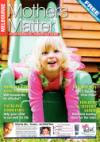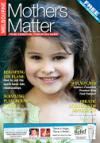Friday, April 30, 2010
The crying game
But being an older baby means she has also worked something out: the ability to cry on cue. Yes all babies cry, it's instinctive. But I think tiny babies give it no thought. They cry to be fed, they drink up and then sleep. What is there to think about?!
But once they hit six months they suddenly cotton on to the 'crying game'. They realise that if they cry, their mum will come to the rescue. And then they like to exploit it. So they cry to be fed, they go back to their cots with a full belly and then they cry again. This time it's just for laughs. Just to see what mum will do. She'll probably try to feed again but the wise little baby is not hungry. Instead, this bub will kick, gurgle and smile at their ability to bring mum back to the room. So mum leaves and the baby begins to cry - sobbing just to bring mum back.
In my brief years of parenting three children, I've found that all babies do it at some point between five and eight months. They're just testing the limits - something they'll continue to do in other ways as they grow older.
With my youngest crying and bringing me back into the room, she's not only tested the limits, she's jumped on and flattened them. Now I'll have to teach her to sleep. She must realise that I'm the puppeteer pulling the strings around here and I'll dictate when she sleeps. '
Hah.
It's overly ambitious isn't it?
Thursday, April 29, 2010
WIN A HIGH TEA FOR TWO!
"There is no way to be a perfect mother, and a million ways to be a good one" (Jill Churchill).
WIN A HIGH TEA for two in your capital city: follow Mothers Matter on Facebook & tell us in three words or less what your mum does best (comp closes 5pm 5/5/2010).
Thursday, April 22, 2010
Child care glut
Wednesday, April 21, 2010
Spoilt for choice
Tuesday, April 20, 2010
Weaning is wearing.
The excitement of starting solids with a baby can quickly wear thin. I remember offering rice cereal to my first child, Tom when he was six months old and revelling in the novelty of it. I also remember the novelty wearing off about three weeks later when I realised the extra planning and cooking involved to feed this extra mouth.
Second time around with my daughter Minnie, I wasn’t as excited about the weaning process. But I was a little jovial as I tried to force that first spoonful in.
Third time around, I contemplated not starting solids and whether I could just breastfeed the child forever so as to avoid the whole process (a fleeting thought, mind you!). Anyway, as baby Daphne approached six and-a-half months, I sighed, pulled out the Farax and introduced her to the wonderful world of food.
Sure introducing new flavours to little mouths is hard work but at least you can share the load. Having breastfed my children, I find sharing the task of feeding solids a great way to enlist the family and give me some time out. The glass is always half full!
If you have chosen to breastfeed your children, well done on making that decision. You might be one of 90 per cent of Australian women that give it a go. If you’re still feeding when your baby is six months of age, kudos to you for persevering. According to the Australian Breastfeeding Association, less than 50 per cent of breastfeeding mums make it this far.
Breastfeeding is hard work. Even if you succeed with your first child, you have to start all over again and teach the skills to your second. I’ve had cracked nipples and blundered my way through attachment for all three children. But somehow we made it past the first eight weeks. And in my experience, if you can get that far, it’s easy to continue - but, I never suffered from low supply or continual bouts of mastitis. I have met mums who struggled and were desperate to feed their babies. And you know what, for all its health benefits, I don’t think breastfeeding is the ‘be all and end all’. Not if it makes mum unhappy. All babies need a calm and happy mum and if that means giving your baby a bottle, then don’t feel guilty about it.













